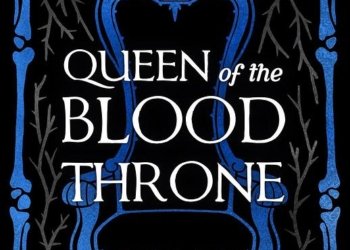No products in the cart.
Kings of Ash by Richard Nell (Ash and Sand #2)
The proverb “time heals all wounds” should be familiar to us all. I can say that’s not always the case. Emotional wounds remain in the psyche while physical wounds produce scars. Additionally, although some aspects may fade with time, the agony never truly goes away; you just learn to cope with it. But what if your memory was perfect? What if, years later, you can still recall the scent of the wind while you held your dying mother in your arms? Or if you can remember the precise volume and pitch of each innocent cry that your sword muffled? If every mistake, every decision, and every moment of your life were preserved in perfect state, forever accessible – is it ever possible to heal from your wounds?
Ruka has to deal with this every minute of the day. The eidetic memory he was given is both a benefit and a curse. His superhuman talents don’t stop there, though; his intellect is so vast and far-reaching that a whole society with its own set of laws governing nature and science exists only in his thoughts. His body is home to two personalities: Bukayag, a merciless killer and cannibalistic renegade, and Ruka, a thinker and planner. In Ruka’s thoughts, a constant struggle takes place between his ability to restrain his baser instincts and his willingness to allow Bukayag to “take over” when necessary. The outcomes aren’t appealing, but they work. This is a credo that Ruka has grown quite comfortable with.
I believe Ruka to be the most intriguing character in all of fantasy. Never before has a character been so unpredictable, so passionate, and willing to do anything to further his own goals. Although he thinks the ends warrant the methods, one of his most intriguing personality traits is that he fully anticipates being held accountable for his acts. Ruka has tortured his followers, murdered innocent people, and committed horrific atrocities. Some of these actions were taken in self-defense, but many others weren’t. Ruka may not be a decent man, but according to one of his followers, Egil, he could be a great man. Someone whose flame is so intense that he will overthrow the gods and alter the course of history.
Ruka considers his voyage to be beneficial despite the fact that he will probably suffer in hell for his deeds. Despite having godlike power, he still muses about an endless period of punishment. Given that we first encounter Ruka while devouring a dead child, it’s a clever trick to pull off that this weakness made it easier for me to identify with Ruka’s humanity. Ruka has done a lot of terrible things, but Nell has found a way to make me love and detest him, question and understand him, and somehow want him to succeed. For such a complicated and menacing figure to evoke such strong feelings of sympathy is a true credit to Nell’s extraordinary talents as a writer.
Kings of Ash, the second book in Richard Nell’s outstanding “Ash and Sand” trilogy, contains many really stunning moments. I don’t say this casually or in any way exaggerate. Nell plays with a multiple-timeline story once more, upsetting the reader’s expectations not just once, but numerous times. There are pivotal moments that entirely alter the course you anticipate for the book, and they appear early and shockingly frequently.
The first novel and this sequel are connected by remarkable disclosures, and they all weave together to form a broader, seamless whole. Nell’s meticulous plotting merits specific praise as the story’s foundational elements blossom into gratifying resolutions. This book somehow improves Kings of Paradise by filling in the narrative holes you didn’t realise there in the first place. While Kings of Paradise divides its focus between Ruka and Kale, Kings of Ash maintains Ruka in the forefront for the most of its running time. Minor characters are propelled into the foreground, and big players are demoted to the sidelines.
And that is advantageous. Though I have nothing against Kale, this is Ruka’s tale. And as thrilling as the multiple shocking plot twists are, the story is mostly centred on the characters, with Ruka’s emotional journey acting as the main plot device. No other character has been on my mind more than Ruka in the several months and dozens of books I read between Kings of Paradise and Kings of Ash. He has made a second Grove and moved in to my mind. I find myself attempting to understand his choices if I had his level of authority and how I would respond if I were going through the same psychological and environmental hardships that he has.
Without giving away too much of the story, I’ve spent the most of my review talking about Ruka. This is done on purpose because I don’t want to detract from the author’s objective by giving away information. I find it difficult to understand how wonderful this series is coming from an author so early in his career because Nell is one of fantasy’s most underappreciated (for now) talents. I have no idea what heights the future has for Nell, but I secretly hope that for the time being, all she does is write Kings of Heaven. Nell has created a unique and unforgettable sequel to Kings of Ash that is better than its predecessor. Your feelings will be played back to you like an unfinished symphony, surprising and entrancing you. I give this series my highest recommendation.
The Review
Kings of Ash
9 Score
KINGS OF ASH by Richard Nell is the sequel to the exceptionally good novel, KINGS OF PARADISE that came out in 2017. An intricate story of a deformed genius named Ruka, a beautiful but ruthless priestess named Dala, and a spoiled prince named Kale. The conflict is over the beautiful tropical paradises that are a stark contrast to the grey "Lands of Ash" that Ruka and Dala come from.
PROS
- A Gut-wrenching Epic of a Great Man.
- An excellent sequel.
- Another pleasant surprise.
- Bold, Unnerving, Brilliant.
CONS
- Disappointing Follow-up.
- Weak plot trope.
- Bad in so many ways.
- Characters I just didn’t care about.











